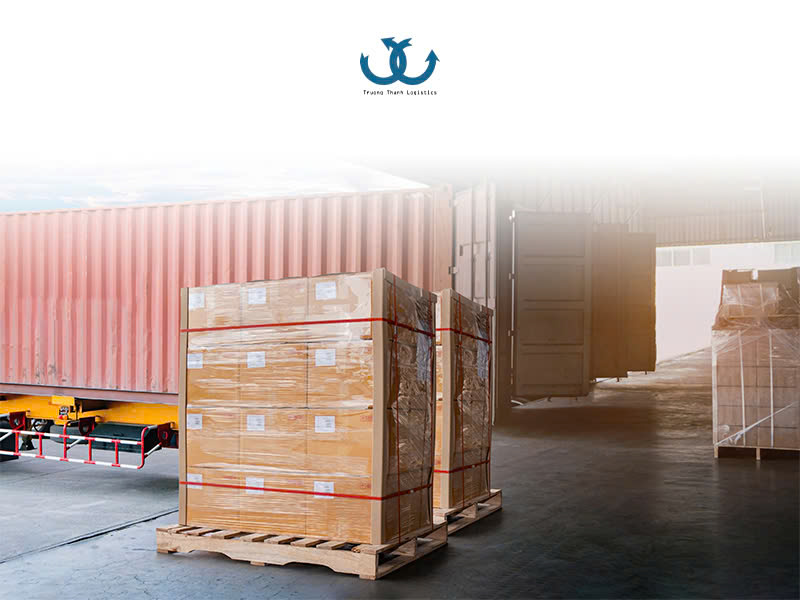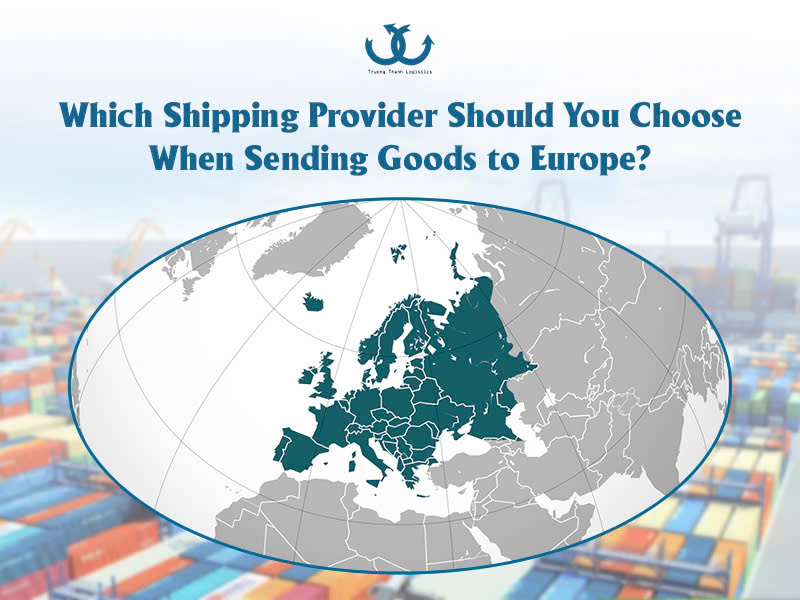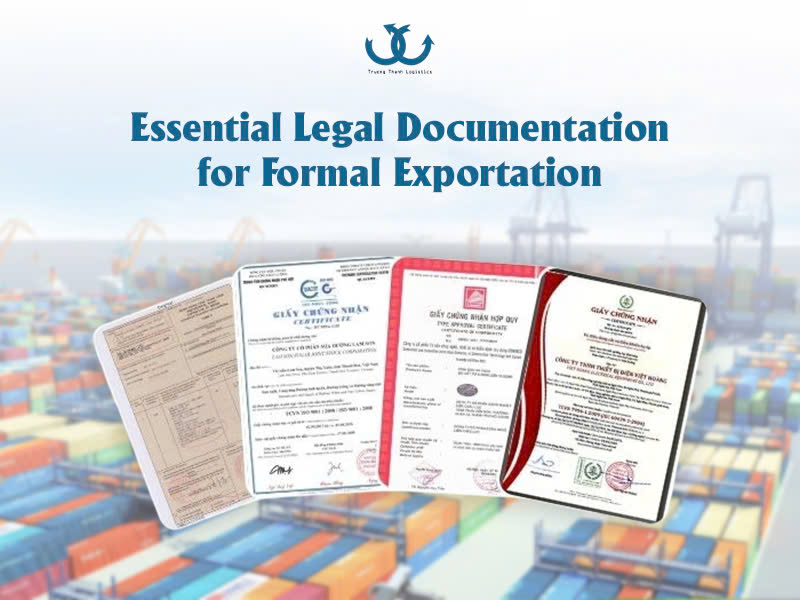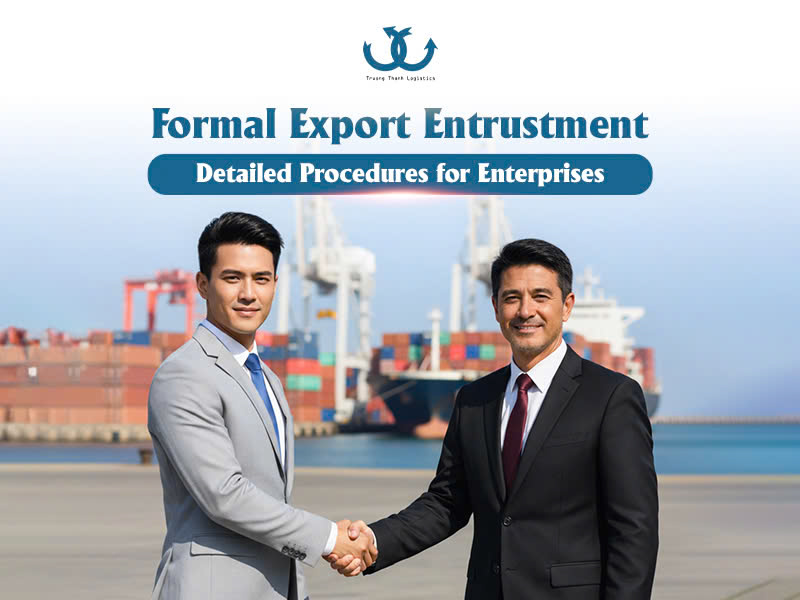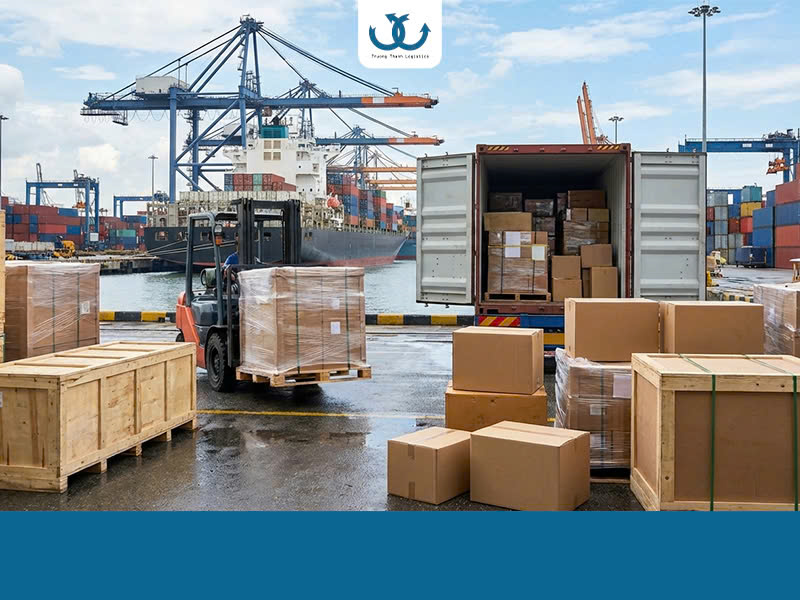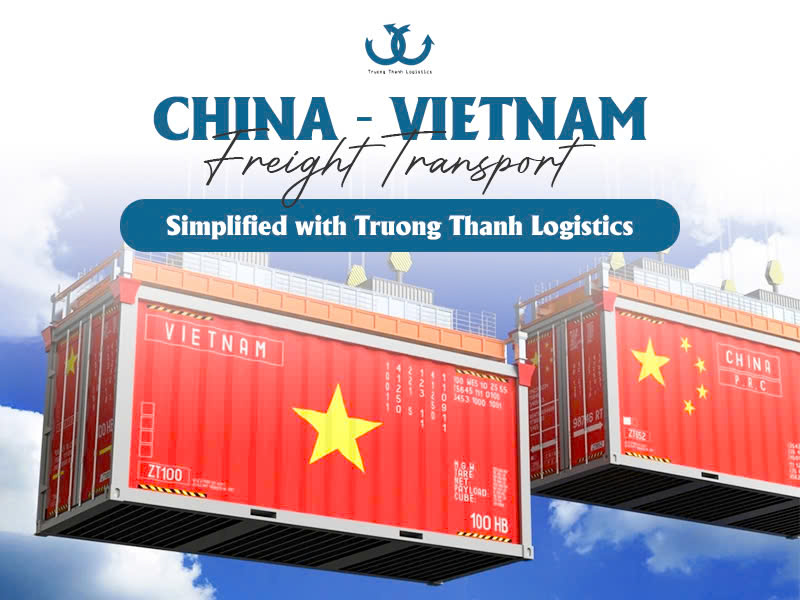The development of e-commerce and the booming market economy have created business opportunities for a vast number of enterprises and individuals. Among these, the import of goods from foreign markets is receiving significant attention.
So, what should customers pay attention to when starting a business by importing goods from abroad?
In the article below, Truong Thanh Logistics will provide customers with 8 crucial things to note when importing goods for business for the very first time.
Why do you want to start a business?
This is the first question you need to answer. Starting a business can sound easy, but it is also an extremely challenging field. Therefore, you must answer the question of why, among countless career choices, you have decided to find a product to trade.
After finding your own reason, the next questions you need to carefully determine are: Which product is suitable for you to trade? When will you officially start your business “career”? Where and how will you import the goods? If you have suitable answers and no hesitation regarding these issues, you can start your work.
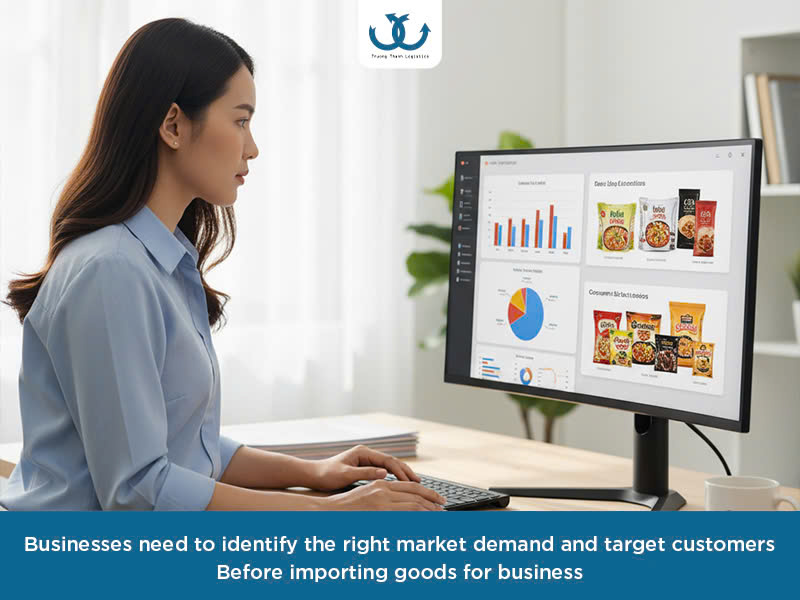
8 Things to Note When Importing Goods for the First Time for Business
1. Identify market demand and target customers accurately
Before you think about importing, understand what your market actually needs.
This is the foundation for choosing the right product type and market segment while avoiding impulsive or emotional decisions.
Ask yourself:
- Where are the products you plan to import being sold most actively?
- Who are your buyers — retail customers, agents, or wholesalers?
- What do they care about most: quality, design, or price?
Studying consumer trends, analyzing data from e-commerce platforms, and observing competitors in the same industry will help you make data-driven decisions and reduce the risk of excess inventory.
2. Choose reliable suppliers to avoid low-quality products
Finding a trustworthy supplier is critical for new importers.
Cheap but unstable or poor-quality sources can lead to major losses.
Before placing a deposit or signing a contract, make sure to:
- Verify the supplier’s business license, tax code, and physical address.
- Review their transaction history and customer feedback, or request samples for quality testing.
- Avoid vague intermediaries or suppliers without clear contracts.
If importing from abroad, research the credibility of trading platforms (such as Alibaba, 1688, or Global Sources) and verify your partner’s legal information to ensure safe transactions.
3. Calculate all costs — not just product price
Product cost is only a small part of your total import expenses.
To prevent losses, create a detailed cost breakdown, including:
- Factory price
- Domestic and international shipping costs
- Import duties and VAT
- Customs clearance, inspection, warehousing, and delivery fees
- Foreign exchange and international payment fees
- Risk reserves (delays, damages, port congestion, etc.)
Estimating the full cost helps you set a realistic selling price and maintain profit margins once goods reach the market.
4. Choose the right transportation method for your goods
Transportation directly affects your delivery time, cost, and product safety.
Depending on the product type, volume, and timeline, choose the most suitable shipping method:
- Sea freight: low cost, ideal for bulky or large-volume cargo, but longer transit time.
- Air freight: fast and secure, suitable for high-value or time-sensitive goods.
- Land or rail transport / multimodal shipping: cost-effective for short routes such as China–Vietnam or Thailand–Vietnam.
Before shipping, check import/export regulations for each country — especially for perishable goods, batteries, food, or cosmetics.
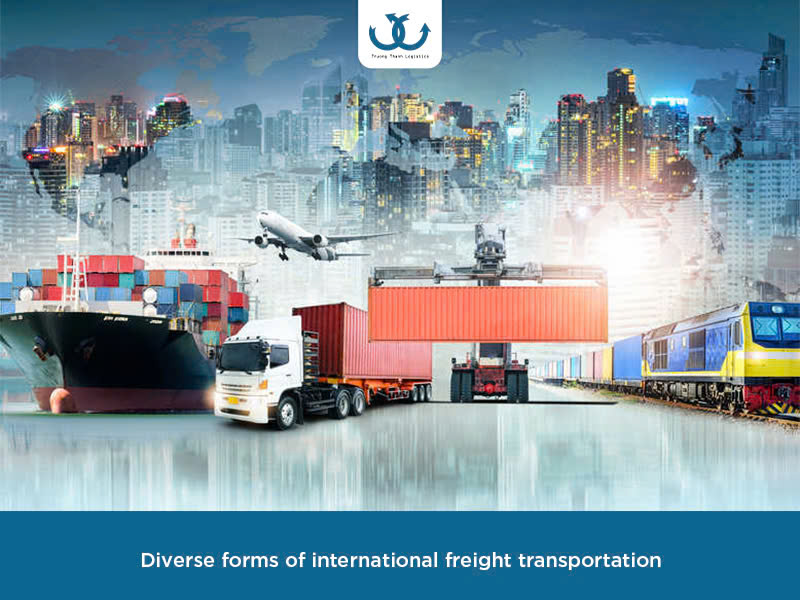
5. Prepare complete and accurate import documents
A common reason shipments are held at the port is missing or incorrect paperwork.
Whether you handle customs yourself or hire a service provider, you must understand the required documentation:
- Commercial Invoice
- Packing List
- Bill of Lading / Airway Bill
- Sales Contract
- Certificate of Origin (C/O)
- Quality Inspection or Quarantine Certificates (for specific goods)
Having all documents properly prepared ensures smooth customs clearance and avoids unnecessary storage costs.
6. Inspect product quality before receiving goods
Quality risks are inevitable, especially when dealing with foreign suppliers for the first time.
Before shipment or final payment, you should:
- Request product samples or real inspection photos/videos.
- For large orders, hire an independent inspection agency to check goods directly at the factory.
- Keep contracts, quotations, photos, and delivery records for potential disputes.
Controlling quality before shipment is the best way to protect your investment and business reputation.
7. Import a reasonable quantity — avoid overstocking early on
The mindset of “buying in bulk to get lower prices” is a common beginner’s mistake.
Before you fully understand market demand, ordering too much can lead to overstocking, slow cash flow, and storage losses.
Ideally, you should:
- Start with a small trial order to test market response.
- Collect feedback on product design, pricing, and quality.
- After 1–2 import cycles, expand your scale and optimize your sourcing strategy.
Caution and flexibility in the early stages help you maintain financial stability and reduce risks.
8. Understand customs procedures and legal regulations
Customs clearance is the final but most crucial step when your goods arrive.
Each type of product has different tax rates, inspection requirements, and import licensing regulations.
Therefore, importers should:
- Know the product’s HS Code to determine accurate tax rates.
- Check if your goods require a special import license.
- Prepare electronic customs declarations in advance to save time.
Understanding the customs process helps you manage timelines, avoid administrative violations, and prevent unnecessary costs.
Trường Thành Logistics – Your Trusted Partner in Import Operations
With years of experience in international logistics, Trường Thành Logistics is more than a transportation provider — we are a strategic partner supporting businesses throughout the entire import process.
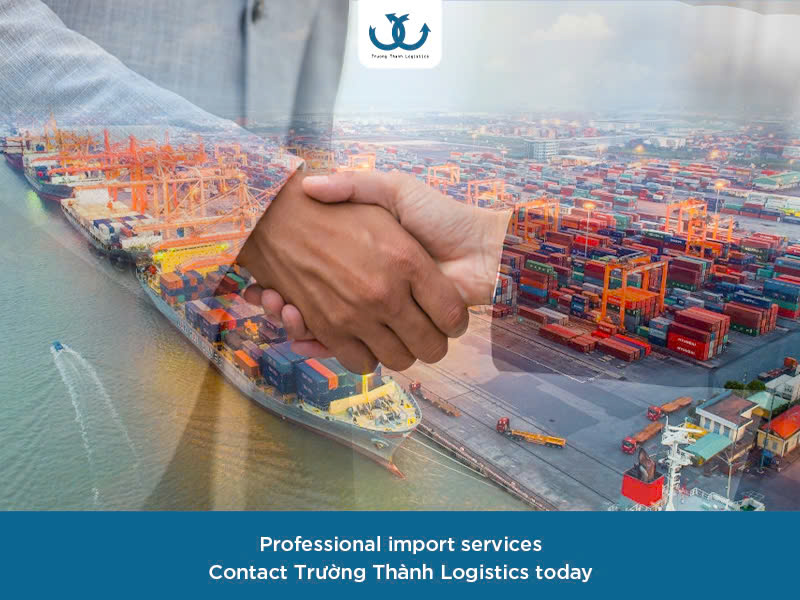
From transportation consulting, customs declaration, to cost optimization and risk management, we deliver tailored, compliant, and efficient logistics solutions for every type of cargo.
Leveraging our deep understanding of import procedures and a reliable network of transport partners, Trường Thành Logistics proudly helps Vietnamese businesses bring international goods home — efficiently, transparently, and sustainably.
Our services include:
- International purchasing (China, USA, Korea, Japan, EU, etc.)
- Multimodal transportation: sea transport – air – land freight
- Customs declaration, customs procedures, inspection, and door-to-door delivery
- Comprehensive import support for first-time business owners
With our experienced logistics specialists, Trường Thành Logistics is committed to delivering safe – transparent – cost-effective solutions, helping clients confidently start their journey in global trade.
Contact Trường Thành Logistics today for detailed consultation and service support.
Trường Thành Logistics – Professional & Dedicated
Hotline: +84 915 36 38 39
Head Office: 5th Floor, Tower A, Song Da Building, Pham Hung Street, Tu Liem Ward, Hanoi, Vietnam.
Email: sale@truongthanhjsc.com
info@truongthanhlogistics.com
Website: https://truongthanhlogistics.com
HAI PHONG BRANCH
Address: Room C103, TTC Building, 630 Le Thanh Tong Street, Hai An Ward, Hai Phong City, Vietnam.
DA NANG BRANCH
Address: 126 Chau Thi Vinh Te Street, Ngu Hanh Son Ward, Da Nang City, Vietnam.
HO CHI MINH CITY BRANCH
Address: Room 41, 4th Floor, Casanova Building, 85 Nguyen Son Street, Phu Thanh Ward, Ho Chi Minh City, Vietnam




